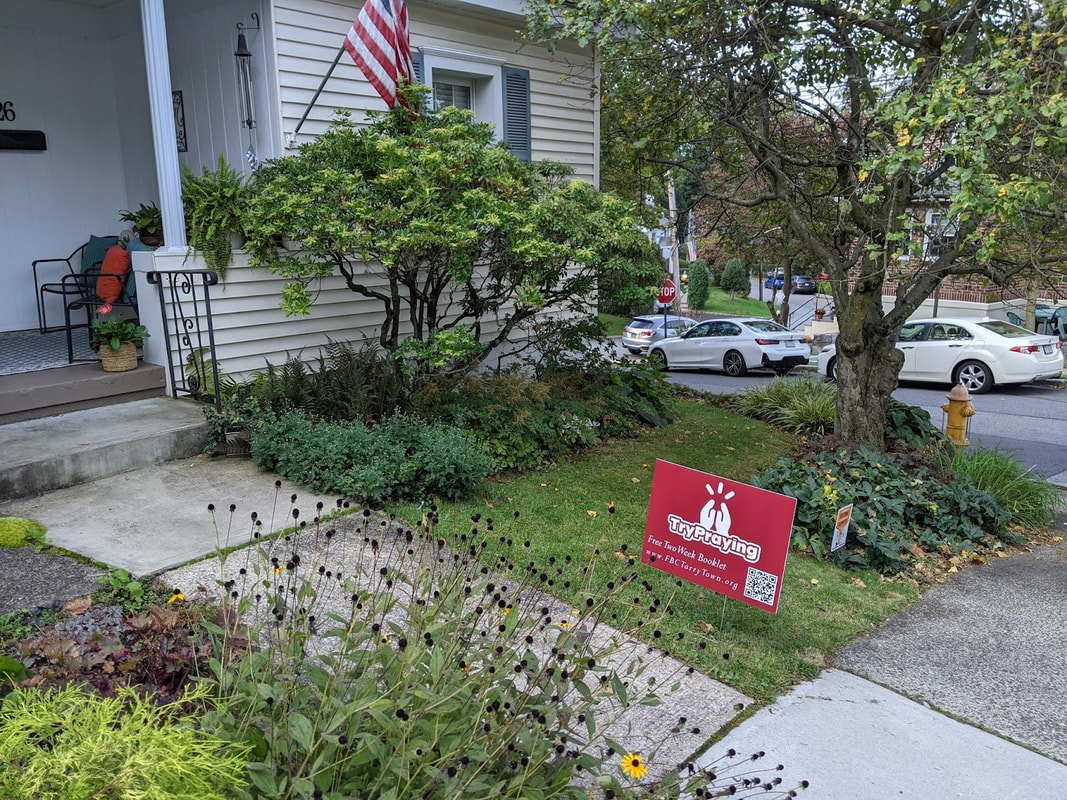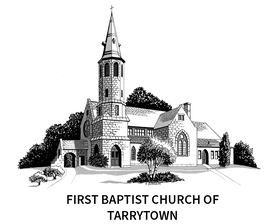|
Franklin Graham was asked by a man in England if he’d be willing to fill shoeboxes with gifts for children in Eastern Europe. He asked Calvary Church of Charlotte where 11,000 shoeboxes were filled within weeks. With additional gifts from Canada, 28,000 shoeboxes were sent to children that Christmas in 1993. Since then, more than 209 million children in more than 170 countries/territories have received Operation Christmas Child (OCC) shoeboxes, which “deliver not only the joy of what, for many kids, is their first gift ever, but also gives them a tangible expression of God’s love.”
Millions of OCC shoeboxes are collected every year throughout the world. Behind the scenes, there are 9,000 year-round volunteers, 80,000 short-term volunteers and 4,000 drop-off locations (this year, FBC Tarrytown is one of 4,000) during National Collection Week (Nov. 13-20, 2023). There are over 1.7 million volunteers who have been trained to teach “The Greatest Journey”, a dynamic follow-up discipleship course for shoebox recipients. Millions of children have enrolled in its 12-lesson program to learn how to follow Jesus and share Jesus with others. Many children witness to family and friends and new churches are being built as a result. All of this is supported by the 30,000 volunteers in Samaritan’s Purse’s prayer network. So we invite you to pack a shoebox* and volunteer at FBC during November National Collection Week to take part in this incredible ministry. *No worries if you are not the shopping type. You can build one at Build-a-Shoebox online. Those “built online go to the ends of the earth to children in some of the hardest-to-reach places - whether deep jungles, city slums, steep mountainsides, or one of 1,000 remote Pacific islands. Many of these areas are resistant to the Gospel, for cultural or religious reasons, and are home to numerous unreached people groups, some of whom have never heard the Name of Jesus Christ. Online boxes are carefully prepared, abiding by strict customs regulations. Sue Chuang
0 Comments
One aspect of a church’s personality is what some would call the “churn rate.” According to Churchtrac, congregations typically see an annual turnover rate between 10 and 15% (ChurchTrac). People come and go for a variety of reasons including jobs, family, retirement, worship style preferences, etc. Our church is no different. Westchester County is not always conducive for young families who want to buy a home or senior citizens who plan to retire. The New York metropolitan area attracts people from around the country and around the world who come for a span of time and then move on.
While attrition is a reality we’ve had to live with, it doesn’t negate the sadness and pain experienced when it occurs. Even more so with families like the Polimenos. They have been solid and faithful contributors to the ministry here for the last two decades. Rob has served as an Elder, been on the Search Committee, has been actively involved in children’s ministry and has been an integral part of our Community Groups with his infamous Prayer Journal. Jen has been on Missions Trips, served on the Missions Committee, supported the Senior Luncheon, organized lawn sales, and has faithfully “paid the bills” as treasurer for the last 4 – 5 years. But what is most impressive about Rob and Jen is their ability to balance an active family life, busy work schedules, plus service to their community and still find time for church activities. They have raised three lovely children who have also been involved in ministry. Many families tend to put serving in church on the “back burner.” But they have modeled the importance of being Christian servants both inside and outside the walls of the physical church building. So, how should a small church like ours deal with the inevitable reality of member turnover? John 13:35 says, “By this all people will know that you are my disciples, if you have love for one another.” We commit to each because we’re commanded to love one another. Time is short. Often, obedience to God’s command means taking a relational risk. It hurts to see people you grow to love, move away. But it’s within the safe walls of commitment where relationships flourish. The crucial point is this. The Polimeno’s aren’t leaving our hearts, they are just leaving the area. As Rob put it, it’s just “goodbye for now” until we see them again. Doug Morton, Elder For more insights on coping with the churn see… *https://www.thegospelcoalition.org/article/5-ways-thrive-transient-church/ There are 59 “One Anothers” in the New Testament, exhortations to love, greet, encourage, instruct, teach, be kind and be devoted to one another. We are to be at peace with one another, to carry one another burdens, to forgive one another, to serve one another, to honor one another and to pray for one another. We are not to grumble against one another, but to live in harmony with one another.
These “one anothers” all refer to how we are to relate within the church, living as a church body. They are not about family relationships, romantic relationships or friendships, but are an encouragement for the body to be a unified, loving interactive, thriving community. This vitally important relational glue provides the connective tissue of the body, holding us together and building us up in Christ. So how do we perform these vital functions within the physically dispersed church of our times? When the church met daily in Acts, the “one anothers” were a natural part of the daily interactions, now with only weekly gatherings for worship and Bible studies, these activities happen less frequently. We can contemporize this list to include texting one another, calling one another, emailing one another and even mailing one another words of encouragement. Cooking for one another and visits with one another are other means. Reach out and bless one another through these, and if you have been blessed by another, do likewise. Be contagious in your love for one another! Philippians 2:1-4: Therefore if you have any encouragement from being united with Christ, if any comfort from his love, if any common sharing in the Spirit, if any tenderness and compassion, then make my joy complete by being like-minded, having the same love, being one in spirit and of one mind. Do nothing out of selfish ambition or vain conceit. Rather, in humility value others above yourselves, not looking to your own interests but each of you to the interests of the others. Ken Ocheltree, Elder As someone with an electrical engineering background, reluctance is something I think of a little differently. It’s the magnetic equivalent of electrical resistance (yes, I know, really helpful) and is most often associated with electric motors, transformers and shielding around magnetically noisy circuits like loudspeakers. It may seem conceptually challenging, but it’s really not that much different from the more familiar definitions. I also sometimes see (the more familiar) reluctance, particularly when I see dogs distracted by an intensely interesting smell or the sudden and frantic dash of a squirrel. The person wants to go one way, but the dog does not. In fact, the dog really really really wants to go in a completely different direction, right now. The leash goes taut and in the end, the dog and person continue together, perhaps with one of them looking back with an unmistakable mix of frustration, longing, disappointment and regret. This past week, my wife and I put “Try Praying” yard signs up in our yard, one in the front, and one in the back. Here’s the one in the front.  Now, some of you might not feel the reluctance here, but for me, as a thinking introvert, I do. I am naturally reluctant to attract attention, and I avoid confrontation, perhaps sometimes too much so. Putting an overtly Christian sign in my yard definitely gets me feeling reluctant. I find myself defensive, sinking into internal debate. Even if this doesn’t provoke hard feelings or an argument, will it do any good? This is my big problem with outreach; I struggle to believe that proclaiming the Gospel isn’t just standing alone in an empty desert, shouting into the wind. But I feel God tugging the leash. I feel His prompting to be faithful, to act like I believe He is able to change people’s hearts and lives. I feel the Holy Spirit squeezing my heart, poking at my conscience, and slowly, with some longing looks back, I put the signs in my yard. There are so many good examples from Scripture. In the book of Genesis, Moses tells God that he can’t speak well enough to face Pharoah alone. In the book of Judges, Gideon asks God over and over to confirm God’s calling in Gideon’s life to save the Israelites from their oppressors. Jonah flat out tries to run off, knowing God and yet still thinking that it’s possible to hide from Him. And Peter, in fear and reluctance, denies knowing Christ three times. It doesn’t make reluctance right, but it is good to see that God still loves and uses the reluctant. He is patient, working in us to work through us. Yes, we have to step back into the direction He wants to go. We have to leave our fears and longings behind and follow Him. But then… wow. We get to see Him at work, powerful, amazing and incomprehensibly God. So good! So, be strong and courageous. Don’t turn to the left or the right. As the Holy Spirit prompts, follow God’s lead in your life and let’s see what happens! Tim Raymund, Elder This is my last Bellpost as an Elder at FBC Tarrytown. I have been transferred to Boston for work starting October 23rd. It is bittersweet for me and Jennifer. We always knew we would relocate back to Massachusetts someday, to be closer to our aging parents, siblings, nieces and nephews, but that does not make the transition any easier. We have lived in Westchester for 20 years where we raised our three children (also now all in college in Boston), became involved in the local community, and grew physically and spiritually alongside you, our FBC family. We are most saddened to leave behind good friends and our church family as we begin this new chapter in our lives.
Although we are sad to go, we only need to look at our own experiences in the last 20 years to know that our relationships, especially with our brothers and sisters from FBC, will stand the test of time. Many church members have moved away one, five, and even 10 or more years ago, but have returned to the area and FBC to visit. During these reunions, it feels like no time has passed since we last saw each other. That is the power of the everlasting bond we share, belonging to a fellowship of believers, knowing that Jesus Christ is our Savior. Not only will our friendships be steadfast here on earth, but we will see each other in eternity. We were blessed to have been invited to an FBC Sunday Service by a neighbor over 20 years ago. It was no accident as the Holy Spirit was at work then and continues to be now. We know that FBC Tarrytown is in good hands, not because of the Elder Body, the Trustees , or even our new pastor, but because the church is in God's hands, and He is good! Our house in Dobbs Ferry is still on the market. I will return to New York in November for work. We'll say goodbye for now, until we see you again. Robert Polimeno FBC Elder Romans 15:5 in the CEB version says, "May the God of endurance and encouragement give you the same attitude toward each other, similar to Christ Jesus' attitude."
Throughout our lives, there will be times when we feel discouraged and lack motivation. These moments are often caused by difficult experiences and challenges that seem insurmountable. But Romans 15:5 reminds us that believers in Jesus receive three gifts from God. Firstly, God provides us with endurance. When we start feeling tired of doing good or living for God, it's usually because we're motivated by the wrong things. True motivation comes from living for God, not ourselves. Through the Spirit, God gives us the endurance to make good choices and live for Him. Secondly, God encourages us. When we feel discouraged or let down by others, God provides us with lasting encouragement. He reminds us of His love and that we're being transformed. As children of God, we don't need to seek approval or acceptance from others because we're already loved and accepted by Him. Lastly, we can pray for unity of mind with others. This means we should view others as Jesus would, seeing them as loved and cared for by God despite their flaws and mistakes. Instead of causing division, we should work towards unity with each other. Spending time praying for endurance, encouragement, and unity with others is important. If you're feeling fatigued, ask God for the strength to continue doing good for those around you. If you're feeling discouraged, ask God for the encouragement that only He can provide. And most importantly, ask God to give you the same heart and mind as Jesus so that you can unite with others instead of dividing them. Prayer: God, thank you for loving and serving your people. I want to live a life that honors you, so please help me love and serve your people with the same attitude. Give me opportunities each day to express your love to others and help me to go out of my way to serve those around me. In Jesus' name, Amen. Elder Greg Thompson We're about to conclude the book of Habakkuk this Sunday. One of its central themes is waiting – waiting for God to answer and waiting for God to take action.
In our fast-paced 21st-century lives, waiting is not often seen as a virtue. We grow frustrated when traffic moves slowly, annoyed when someone takes too long to respond to a text or email, or even angry when a restaurant delays bringing our food. This quick-paced lifestyle often extends into our spiritual lives. We expect God to respond to our prayers immediately and resent it when His answer is simply to wait, especially when the matter is of great importance – waiting for the love of your life, the right job, justice to be served, or healing for a loved one. I can share plenty of examples illustrating the perils of not patiently waiting for the Lord to take action. I have a friend who rushed into marriage with someone he barely knew, and it ended in catastrophe. Another friend quit a job he disliked without another lined up, then turned to the church to pay his bills. Far too often, when faced with a problem, I immediately want to fix it. However, my ability to do so in most situations is quite limited. More often than not, I'll make the situation worse if I don't turn to the Lord in prayer, seek help from others, and wait for God to address my needs. It's challenging because sometimes God instructs us to wait for an extended period. In even more difficult situations, such as terminal illness, He asks us to wait for the life to come when Jesus will renew all things. I could provide examples of good things eventually coming to those who waited – successful marriages, fulfilling jobs – but in reality, we don't always fully comprehend why God tells us to wait. We can't see the hidden dangers He's protecting us from, and our imaginations are too limited to grasp the goodness He has in store for us. So, we face the difficult task of choosing to trust God. We choose to believe that He is good and has a wonderful plan for Jesus' followers. We choose to believe the words given to the prophet, which remain true today: Though it delays, wait for it, since it will certainly come and not be late (Habakkuk 2:3b). |
The BellpostThe web version of the weekly email! ArchivesCategories |
First Baptist Church of Tarrytown |
Ministries |
PHONE: (914) 631-6372
56 South Broadway Tarrytown, NY 10591 Copyright © 2023 First Baptist Church of Tarrytown
All rights reserved. |


 RSS Feed
RSS Feed
